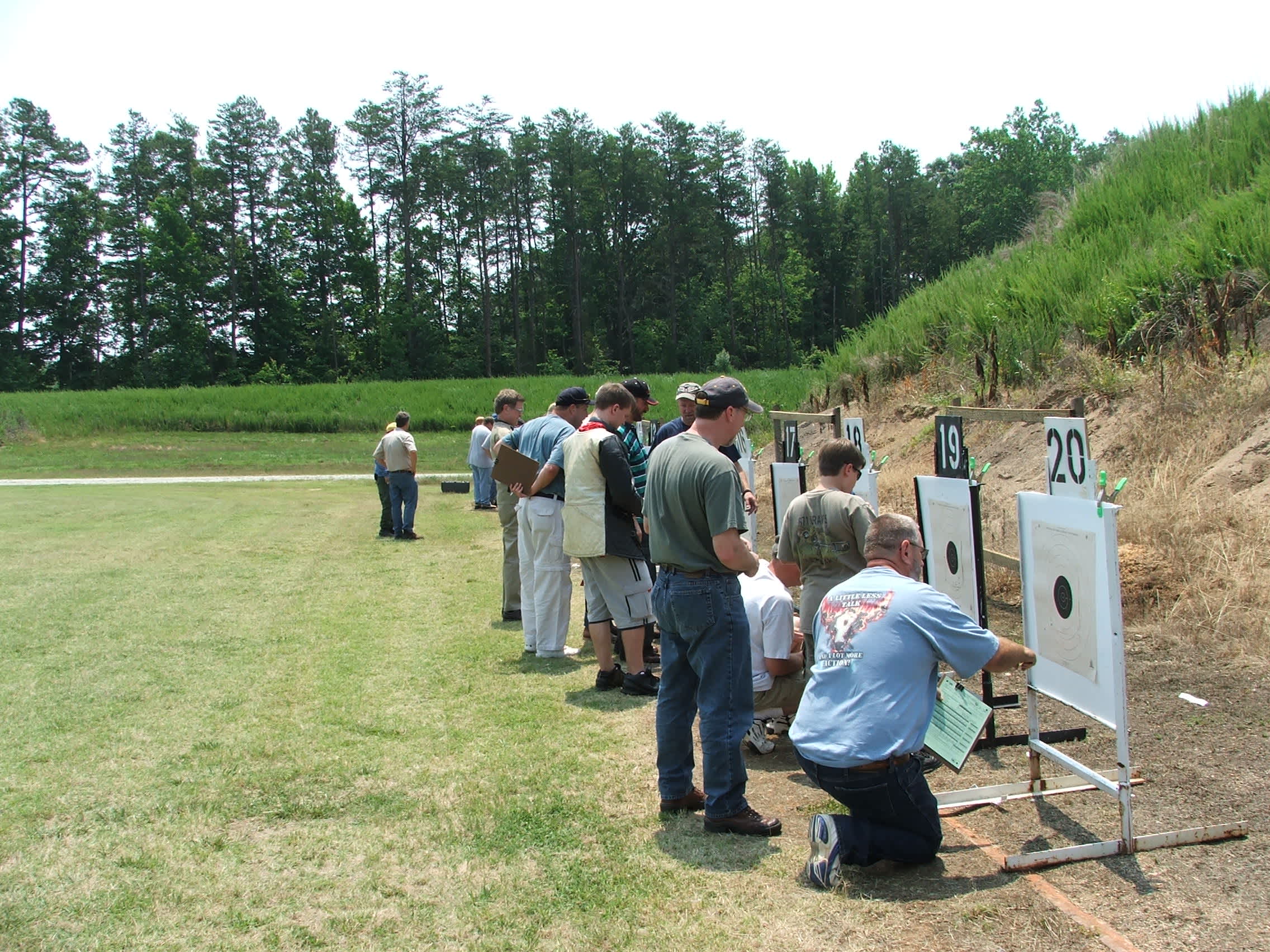Practice Isn’t Enough: The NRA National High Power Rifle Championships
Lewis Creek Shooting School 08.01.13

It’s called the knee-high Camp Perry wind, and it affects almost everybody who competes in a National Championship at the iconic range on the shores of Lake Erie, in northern Ohio. My first experience was in 1984. I was an expert High Power shooter, shooting with the Army Reserve’s Billy Atkins. Billy was one of the best long-range shooters in the history of the Army Reserve and held the 1,000-yard Service Rifle record at the time.
I was so nervous my hands trembled when I snapped each round in the magazine of my Springfield Armory M14 rifle. Billy was calm as a cucumber and seemed totally relaxed. I was first relay and being first didn’t help. I struggled through the day and ended with a respectable 460 of a possible 500 points. Not enough for a medal, but not that bad for my first time at Perry. When we got to the pits. Billy talked to me the whole time about everything but rifle shooting, except for a short sermon on how to succeed. “You need to shoot your slow-fire fast and your rapid-fire slow,” he explained. “Develop a rhythm and don’t think about your slow-fire so much. You have everything you need to make a good shooter, just shoot enough matches and the nerves will go away.” I was hoping I’d hidden my nerves but I guess he could see the shaking.
No matter what kind of shooting competition you do, there is no substitute for actual competition. Practice is great and it helps you improve your skills. Preparation is essential because you simply can’t do well when you worry about your gear, but you have to develop the ability to deal with pressure and the only way to do that is to shoot in competition as often as possible.
As a writer, I simply don’t have a lot of weekends off. But when I do, I try to compete somewhere in some shooting discipline. Shooting an unfamiliar match is a great way to develop skills in handling pressure and I suspect, consciously or not, it’s the reason the best shooters love to shoot different ranges. If you only shoot at your home range, your first match away from those surroundings will likely pull you off your game. Shooting different locations with people you don’t know teaches you how to manage that pressure.
One match can teach you more than a dozen practice sessions because in practice, you are in charge of the schedule. In practice, if you leave one of your magazines in the vehicle, you simply stop and get it. This isn’t possible in a formal competition and your mind begins to focus on this information before the match ever starts. Formal competition fosters anxiety about your preparation, your execution, and how the shooters around you perceive you. You have to develop skills to cope with that anxiety and all the practice in the world won’t teach those skills.
With just a few days until I’ll be standing once again on the firing line at the National Championships, I’ve competed in two High Power matches within the last three weeks. My scores weren’t what I wanted, and I suspect there will be room for improvement in my shooting. Next week, when the cannon fires colors, and we stand at attention just minutes before the firing of the first shot of the National High Power Rifle Championship, having those two recent matches under my belt will generate confidence.

